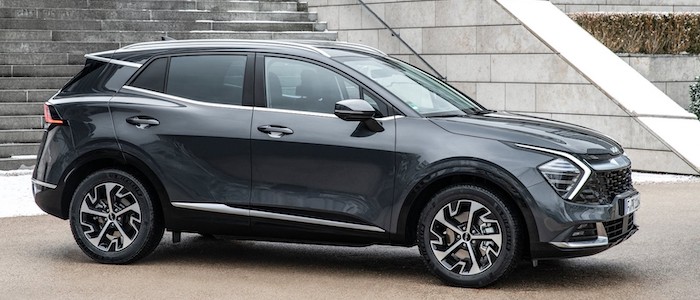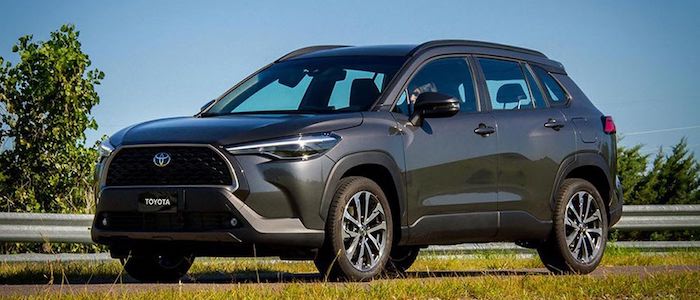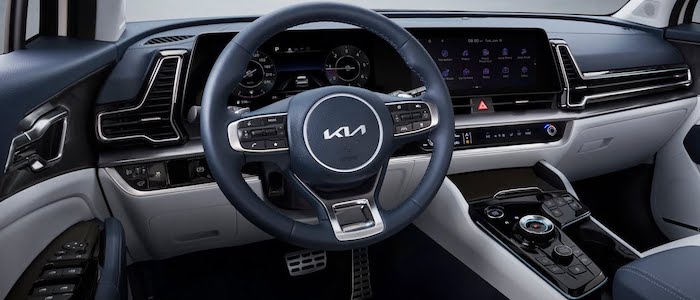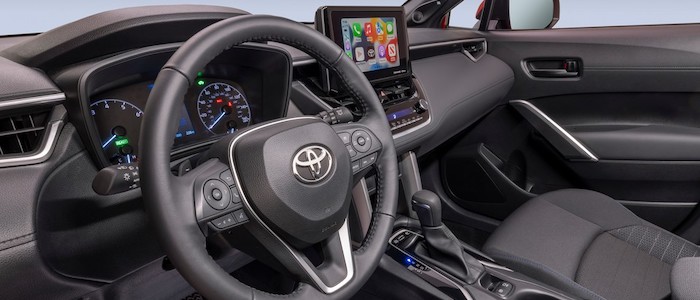Compare two cars
Compare any two cars and get our Virtual Adviser™ opinion
Dimensons & Outlines
Check vehicle history
Engine
1.6 Smartstream G4FP PHEV
1.8 2ZR-FXE Hybrid HP
Performance (manual gearbox)
Performance (automatic gearbox)
Expenses
Virtual Adviser's™ opinion
Two significantly similar cars, no doubt about that. Still, each one has something different to offer. Having both cars powered by hybrid engines and utilizing the 5-door suv body style within the same 'SUV' segment, the only major difference here really is their wheel drive configuration (4 x 4 for the KIA and front in the case of the Toyota). The first one has a Hyundai-engineered powertrain under the hood, a 4-cylinder, 16-valves 265hp unit, while the other one gets its power and torque from a 4-cylinder, 16-valves 140hp engine designed by Toyota.
SafetyBoth vehicles got tested by European New Car Assessment Programme (Euro NCAP), with the same number of safety stars gained in the process. Moving further on, let's take a closer look at some additional safety-related facts. Both vehicles belong to the suv segment, which is generally a very good thing safety-wise, still it doesn't help us solve our dilemma, does it? Furthermore, if we'd like to consider vehicle mass in this context too, which we definitely should, the Korean car offers a considerable difference of 29% more metal.
ReliabilityReliability is not the best thing to consider on the make level, but it is worth mentioning that Toyota does have a slight advantage, all the models observed together. These are the official statistics, while our visitors describe reliability of KIA with an average rating of 4.2, and models under the Toyota badge with 4.6 out of 5. Independent research findings rank Sportage as average reliability-wise, and Corolla Cross is more or less at the same level.We should definitely mention that owners of cars with the same powertrain as the Korean car rank it on average as 3.0 out of 5, exactly the same as the other one.
Performance & Fuel economyKIA is undoubtly more agile, reaching 100km/h in 1.6 seconds less than its competitor. In addition to that it accelerates all the way to 191 kilometers per hour, 21km/h more than the other car. When it comes to fuel economy an obvious choice would be the Korean car, averaging around 1.6 liters of fuel per 100 kilometers (177 mpg), in combined cycle. That's 231% difference compared to the Japanese car!
Verdict
Toyota appears just a bit more reliable, although the difference is truly marginal. The most important thing when deciding between any two vehicles should always be safety, both passive and active. In my opinion, everything taken into account, the Korean car offers significantly better overall protection, taking the lead here. It all continues in the same direction, with KIA outracing its opponent in any situation possible, making it better choice for boy racers. To make things even better, it consumps less fuel! All together, there's not much more to say, in this case I wouldn't even consider anything but KIA. In any case that's my personal view, built upon all the data available to me. What should decide here though is the way you feel about the two vehicles, and I hope you'll find my guidelines useful in the process. In case you have two minutes to spare I invite you to define your needs, desires and budget and see which car would be chosen by the virtual adviser™, among thousands of similar, yet so different vehicles.



































